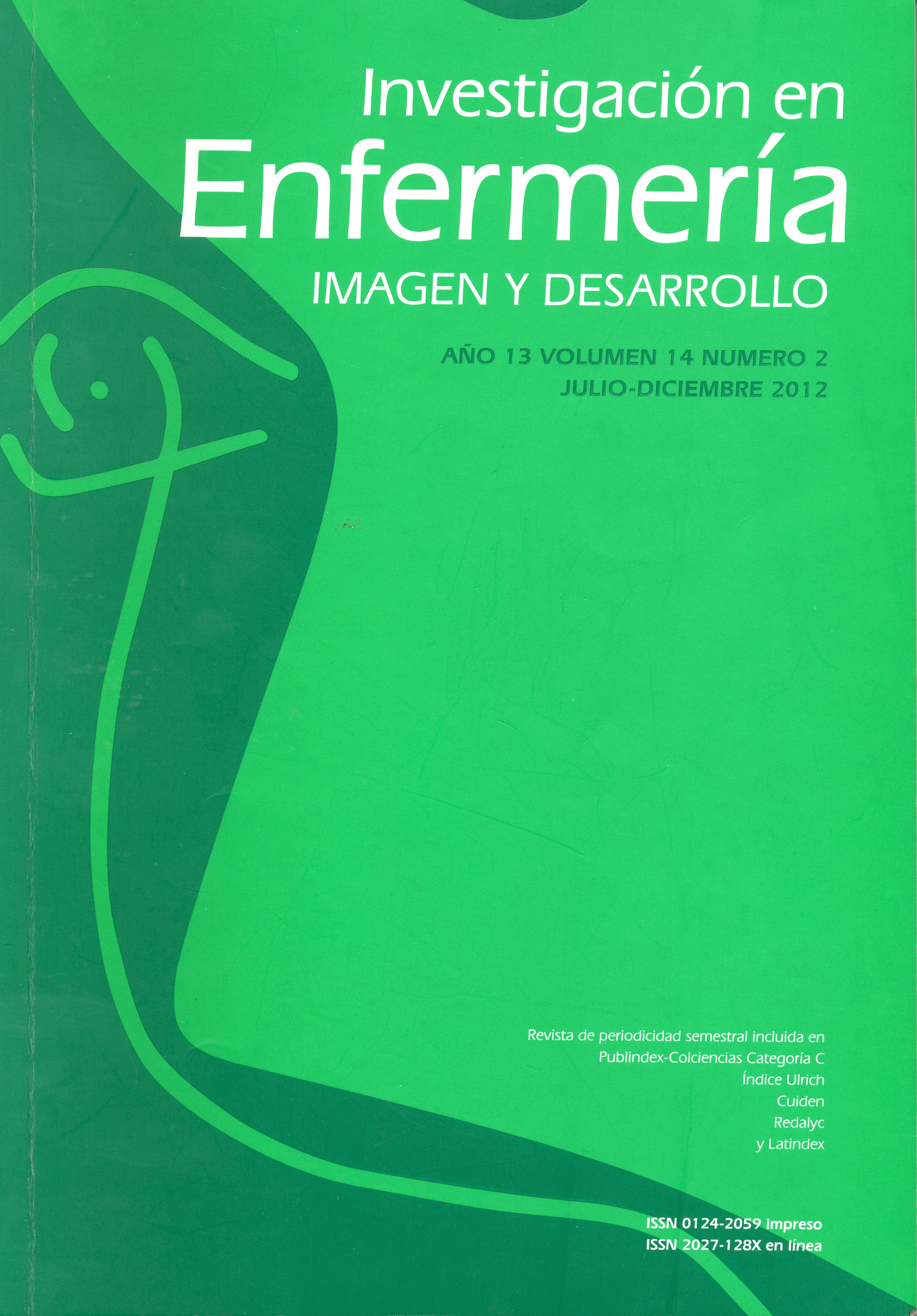Resumen
La religión es una dimensión importante en la vida de las personas mayores. Se ha encontrado en muchos estudios que las personas con creencias y prácticas religiosas afrontan de mejor manera las situaciones de estrés que lleva consigo el envejecimiento, que también gozan de mejor salud física y mental y que viven más que las personas no practicantes. El objetivo de este artículo es presentar los hallazgos en torno a las prácticas religiosas en un grupo de personas mayores en situación de discapacidad y pobreza y su impacto en el cuidado de la salud. Se planteó una aproximación cualitativa de tipo etnográfico. Los participantes fueron 36 personas mayores en situación de discapacidad, habitantes de barrios marginales de la ciudad de Bogotá. Se identificó un patrón cultural y dos categorías que dieron cuenta de las prácticas religiosas de los colaboradores. Las prácticas religiosas intrínsecas, como la oración privada y la lectura de libros sagrados, fueron las más utilizadas por este grupo. La adherencia a una religión ayuda a las personas a mantener el cuidado de la vida y la salud, a pesar de las dificultades del contexto. Igualmente, las redes sociales de apoyo se maximizan mediante la práctica de actividades religiosas, como las visitas de los grupos religiosos.
ABSTRACT
Religion is an important dimension within the lives of older people. It has been found in many studies that people with religious beliefs and practices face in a better way the stressful situations that aging brings, they also enjoy a better physical and mental health and live longer than non-practicing people. The purpose of this paper is to present the findings about the religious practices in a group of seniors in situation of disability and poverty, and its impact on health care. A qualitative approximation (ethnographic) was proposed. 36 senior citizens - in situation of disability, living in the poorer areas of the city of Bogotá - were part of this research. We identified a cultural pattern and two categories that showed the religious practices of the collaborators. Intrinsic religious practices, such as the private prayer and the reading of holy books, were the most used by this group. The adherence to a religion helps people to take care of their lives and health, despite the difficulties of the context. Similarly, the social support networks are maximized through the practice of religious activities, such as the visits of religious groups.
La revista Investigación en Enfermería. Imagen y Desarrollo se encuentra registrada bajo la licencia Creative Commons Reconocimiento 4.0 Internacional. Por lo tanto, esta obra se puede reproducir, distribuir y comunicar públicamente en formato digital, siempre que se reconozca el nombre de los autores y a la Pontificia Universidad Javeriana. Se permite citar, adaptar, transformar, autoarchivar, republicar y crear a partir del material, para cualquier finalidad (incluso comercial), siempre que se reconozca adecuadamente la autoría, se proporcione un enlace a la obra original y se indique si se han realizado cambios. La Pontificia Universidad Javeriana no retiene los derechos sobre las obras publicadas y los contenidos son responsabilidad exclusiva de los autores, quienes conservan sus derechos morales, intelectuales, de privacidad y publicidad.
El aval sobre la intervención de la obra (revisión, corrección de estilo, traducción, diagramación) y su posterior divulgación se otorga mediante una licencia de uso y no a través de una cesión de derechos, lo que representa que la revista y la Pontificia Universidad Javeriana se eximen de cualquier responsabilidad que se pueda derivar de una mala práctica ética por parte de los autores. En consecuencia de la protección brindada por la licencia de uso, la revista no se encuentra en la obligación de publicar retractaciones o modificar la información ya publicada, a no ser que la errata surja del proceso de gestión editorial. La publicación de contenidos en esta revista no representa regalías para los contribuyentes.


